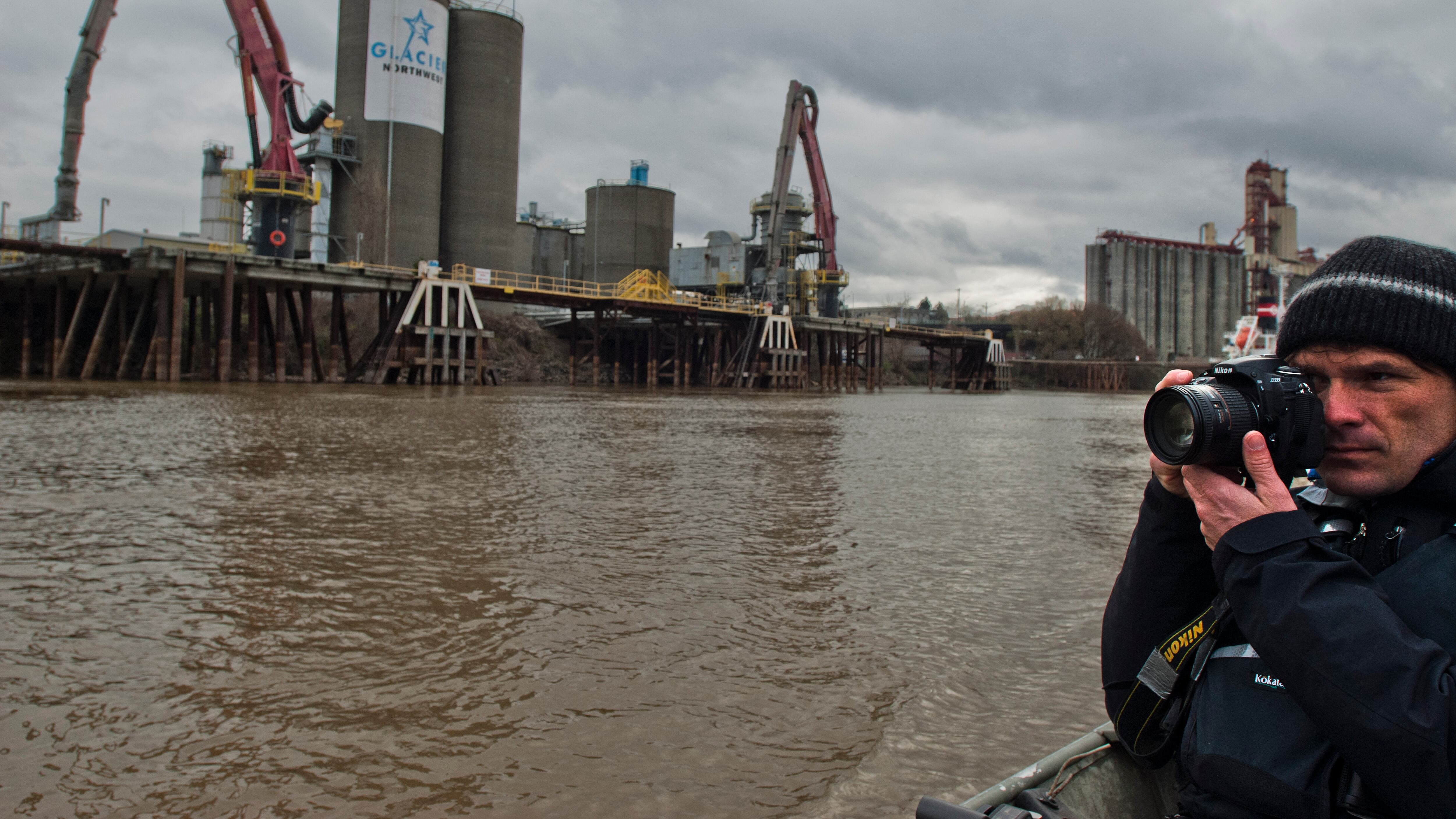The U.S. Environmental Protection Agency has ordered a $1.05 billion cleanup of the federal Superfund site in Portland Harbor.
That's a significant increase since the draft $746 million proposal last June spurred outcry from environmental watchdogs and Native American tribes.
The increased price tag results from the EPA adopting a plan that requires a more aggressive cleanup.
In all, 365 acres of the bed of the Willamette River—100 more acres than previously proposed under the draft plan released on June 8—will be actively dredged or capped under this plan. Dredged river soil will be transported off-site, rather than disposed of in the river as previously proposed.
The cleanup of the 10-mile long stretch of river is now expected to take 13 years. And the next step involves the companies and governments that own polluted property along the river negotiating over who pays for the cleanup.
Related: The Portland Harbor is a toxic embarrassment. And there's plenty of blame to go around.
UPDATE, 3 pm: The Port of Portland, one of the entities that will have to divvy up the cleanup bill, has released a statement decrying the EPA's decision.
"We estimated the cost of the earlier Proposed Plan would be close to $1.8 billion, nearly double EPA's estimates at the time," said the Port's deputy executive director, Curtis Robinhold. "Now with a more aggressive remedy and adding significantly more dredging, EPA's plan could cost over $2 billion. The cost of implementing EPA's [plan] is staggering."
Robinhold warned that companies along the Willamette will now drag their feet.
"Support for EPA's proposed plan was already weak among private Potentially Responsible Parties," he wrote, "and the [new] direction can only promote more delay in getting to cleanup."
The city of Portland is one of the parties on the hook to pay for the cleanup. Yet Mayor Ted Wheeler and Commissioner Nick Fish praised the EPA's decision and pledged to begin work quickly with other parties willing to cooperate.
"We are pleased that the EPA has released its plan for the Portland Harbor cleanup," Wheeler and Fish said in a joint statement. "The City is committed to a clean river and is prepared to lead in building coalitions and partnerships to get this cleanup done right and done as soon as possible. This work is going to be done locally and it's our priority to have it done by local workers. The time to act is now."
There is still uncertainty hanging over a cleanup that is 16 years in the making.
It's not clear at this point what role federal politics will play in the future of the Superfund site. The Trump administration is widely expected to dismantle environmental protections—offering a possible escape hatch Portland Harbor polluters.
Environmentalists had been pushing for an even more aggressive cleanup, but pledged to work with the plan the EPA has prepared.
"This is not the plan that we ultimately would have wanted," says Travis Williams, executive director at Willamette Riverkeeper. "At this point it's something we can work with."

